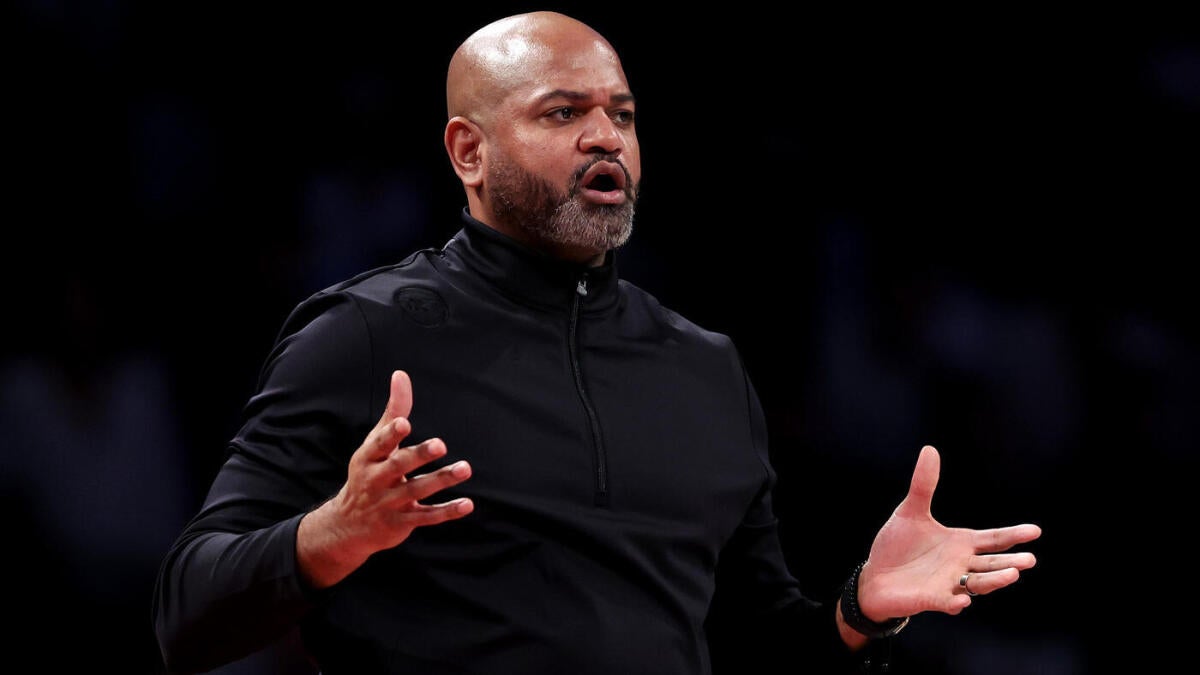Navigating the Modern NBA Coaching Landscape: Unpacking the Thibodeau Firing and Bickerstaff’s Insight
The firing of Tom Thibodeau by the New York Knicks has stirred significant conversation around what it means to coach in today’s NBA. Despite leading the Knicks to an unprecedented Eastern Conference Finals appearance in over two decades, Thibodeau’s dismissal raises questions about the volatile nature of NBA coaching jobs. Detroit Pistons coach J.B. Bickerstaff’s candid perspective sheds light on the complexities coaches face, and the broader trends influencing these high-stakes decisions.
The Surprising Departure: Context Behind Thibodeau’s Exit
Thibodeau’s release came as a shock, particularly given the Knicks’ notable progress. Breaking a 25-year playoff drought and energizing a frustrated fanbase should typically cement a coach’s position. His disciplined, defense-first approach not only rejuvenated the team’s identity but also restored hope for sustained competitiveness. Yet, the front office’s abrupt decision signals that in the NBA, success is a slippery concept—often measured not just by results, but by evolving expectations and internal strategic shifts.
This scenario is a clear manifestation of how quickly fortunes can reverse in professional sports coaching. Even landmark achievements may not shield a coach from dismissal if the franchise envisions a different path or becomes impatient for further breakthroughs.
J.B. Bickerstaff’s Support: A Peer’s Perspective
Bickerstaff’s defense of Thibodeau comes from a place of personal understanding and professional empathy. Having faced his own firing with the Cleveland Cavaliers, he recognizes the fragility of coaching jobs. His statement that guiding a team to the Eastern Conference Finals qualifies as a successful tenure emphasizes a fundamental truth: in an environment crowded with pressure, reaching such heights is itself a notable accomplishment.
Bickerstaff’s perspective also shines a light on the relentless demand placed on NBA coaches. Keeping a job isn’t simply about meeting expectations—it often requires exceeding them at an extraordinary level consistently. When results waver or expectations accelerate, coaches like Thibodeau become vulnerable, regardless of demonstrated progress.
Coaching Volatility and the “Final Straw” Phenomenon
Bickerstaff’s criticism highlights a growing trend in the NBA: rapid coaching turnover after brief or moderate success. The Knicks’ decision to part ways with Thibodeau exemplifies how franchises increasingly lean toward short-term responses rather than nurturing long-term plans. This “final straw” effect—the tendency to dismiss coaches after perceived shortcomings even amid measurable improvement—raises concerns about stability in coaching roles.
The tension here stems from the competing desires within organizations. Front offices strive for immediate success to satisfy ownership and fans, but this urgency can undercut the patience often needed to solidify team chemistry, develop young talent, and refine systems. Such reactionary moves may paradoxically hinder the establishment of sustained winning cultures.
The Balancing Act: Success Versus Expectations in NBA Coaching
The predicament coaches face goes beyond Xs and Os. Even a deep playoff run might not assure security if expectations skyrocket or the organizational climate shifts abruptly. The growing influence of media scrutiny and social media amplification compounds the pressure, making every decision and outcome subject to intense public evaluation.
Coaches juggle the dual responsibilities of tactical leadership and managing external narratives—negotiating relationships with players, executives, and fans simultaneously. Bickerstaff’s reflections echo the reality that this multifaceted challenge requires resilience and skill, highlighting the precariousness of coaching roles amid high expectations and ever-present scrutiny.
Reflecting on the Future: Advocating Patience in High-Pressure Situations
The saga surrounding Thibodeau’s firing, paired with Bickerstaff’s insightful commentary, invites a broader reconsideration of coaching evaluation standards in the NBA. Recognizing significant milestones like conference finals achievements as meaningful accomplishments could shift the league’s culture away from fleeting impatience toward deeper appreciation of progress.
Such a shift might encourage franchises to cultivate coaching stability, enabling teams to build enduring, cohesive identities instead of pursuing quick fixes. Bickerstaff’s voice champions a more thoughtful and respectful approach, underscoring that the complex work coaches perform deserves time, trust, and nuanced evaluation.
In an era dominated by the desire for instant results, this outlook serves as a vital reminder of the virtues of patience and perspective. Preserving coaching integrity and continuity could usher in a healthier competitive environment, reducing the frequency of abrupt, disruptive coaching changes and helping the NBA evolve toward greater strategic maturity.

